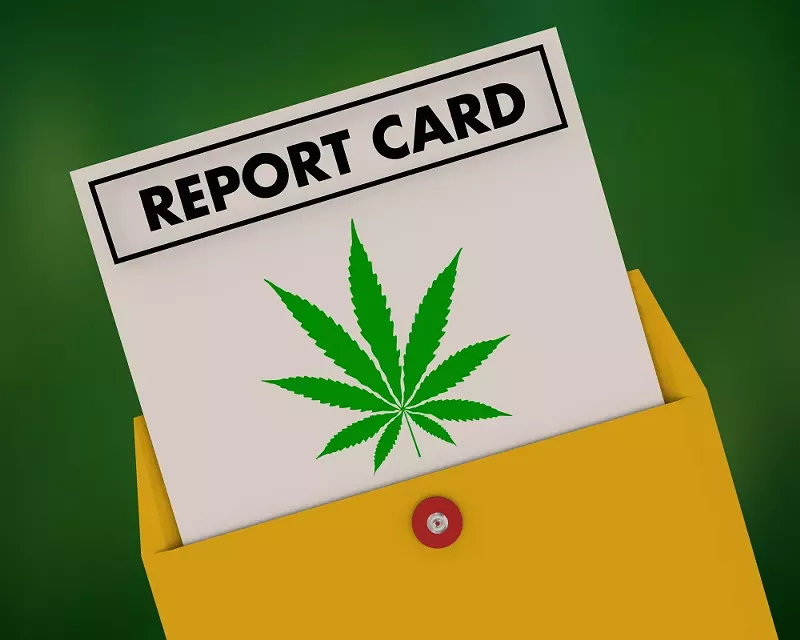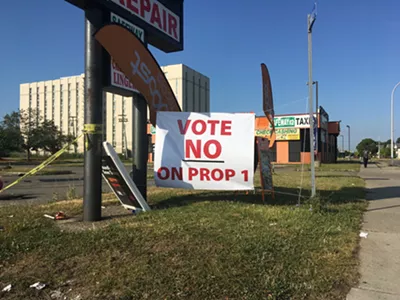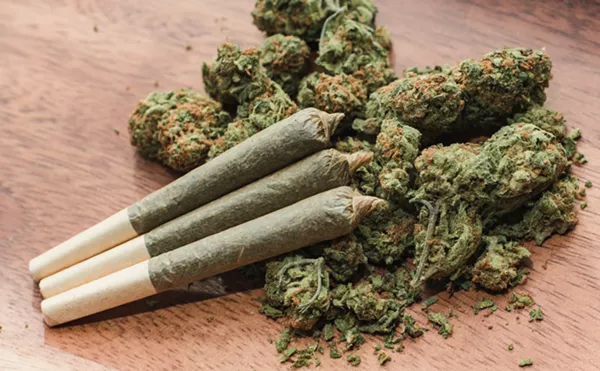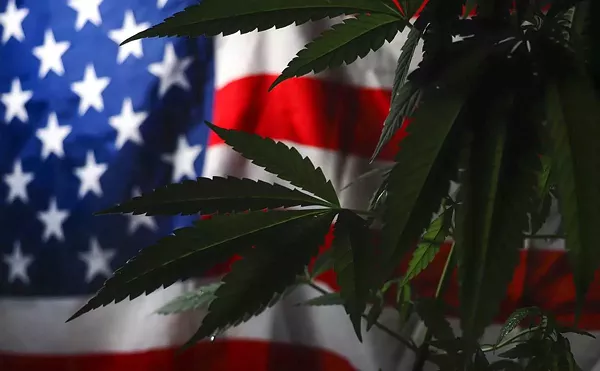
Audio By Carbonatix
[
{
"name": "GPT - Leaderboard - Inline - Content",
"component": "35519556",
"insertPoint": "5th",
"startingPoint": "3",
"requiredCountToDisplay": "3",
"maxInsertions": 100,
"adList": [
{
"adPreset": "LeaderboardInline"
}
]
}
]
Americans for Safer Access, a medical cannabis patient advocacy organization, gave Michigan a B+ in its annual assessment of patient access. By way of a little comparison: nearby Indiana, where not even a whiff of legalization is in the air, graded an F. Illinois's and Oregon's A- grades were the highest.
Adult-use recreational cannabis gets most of the attention these days. A little reminder: the only stuff that is licensed and sold around here at the moment is medical. And while the march has been toward recreational legalization, medical patients are indeed real, and it has been a fight to maintain access to quality medication for them. Right now there are provisioning centers telling customers that they are out of dried flower, the preferred method of ingesting cannabis.
The B+ grade seems a bit high given all the delay and drama that has accompanied the medical marijuana distribution system, but then some states don't have medical marijuana at all. So everything is relative.
"I think it depends on where you live in the state in terms of accessibility to it," says Brandy Zink, a Detroit-based ASA chapter organizer. "Overall we have better access than most states because we have the ability to grow or have a caregiver. ... When you look at it from a 50-state point of view, we have it pretty good. In fact, we have it really good."
How the grades were determined is a little complicated. ASA scored states on five general categories: Patient rights and civil protection from discrimination, access to medicine, ease of navigation, functionality, and consumer safety and provider requirement. Each of those categories had a number of subsections that were then scored. For example, under the patient rights and civil protection category, states are scored for things like affirmative defense, privacy standards, employment protections, reciprocity with other medical marijuana states, and other concerns.
Under the category access to medicine, subsections include things such as allows distribution programs, allows delivery, reasonable number of dispensaries, collective gardening, and more. When it's all said and done, the scoring presents a pretty accurate portrait of the medical marijuana system in each state. By the way, our B+ beats California's B.
ASA also provides some national numbers of interest. There are 3 million medical marijuana patients in the country. There's an average 25 percent drop in opioid deaths in states with medical marijuana. In 2013 there was a $165 million federal drug cost saving in medical cannabis states. Americans support medical cannabis at a fantastic 93 percent. There's plenty more of that sort of thing included.
There's a focus on national laws here because changing federal policy will be the big break for medical marijuana studies and medication development. Zink has travelled to Washington, D.C. to lobby Congress annually the past 20 years.
"This is the first congress that I've ever felt comfortable with," she says. "We supported the Michigan members of this new Congress and they have been listening to us. I've been working very hard on the federal level."
Things such as the Farm Bill that opened doors for hemp production came about due to lobbying efforts of cannabis supporters. ASA worked with the offices of Sens. Debbie Stabenow and Gary Peters, both of whom were sponsors of last year's legislation that will impact the direction of the hemp industry, hemp research, and CBD in the United States.
It's a new era for marijuana in Michigan. Sign up for our weekly weed newsletter, delivered every Tuesday at 4:20 p.m.







